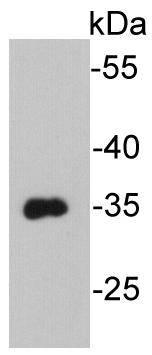Vesicular Stomatitis Virus (VSV) is an arbovirus in the family Rhabdoviridae, order Mononegavirales. VSV infects insects and mammals. The genome of VSV is a negative-sense RNA strand that encodes five major proteins: glycoprotein (G), matrix protein (M), nucleoprotein (NC), large protein (L) and phosphoprotein. The L protein and the phosphoprotein combine to catalyze the replication of VSVs mRNA. After endocytosis, the G protein facilitates VSVs entry into the cell by controlling virus attachment to the host cell as well as fusion of the viral envelope with the endosomal membrane. Transport of the G protein from the endoplasmic reticulum (ER) to the plasma membrane (PM) is temperature sensitive. Because of this property, VSV is commonly used in research labs to study the properties of viruses in the Rhabdoviridae family, and to study viral evolution.

